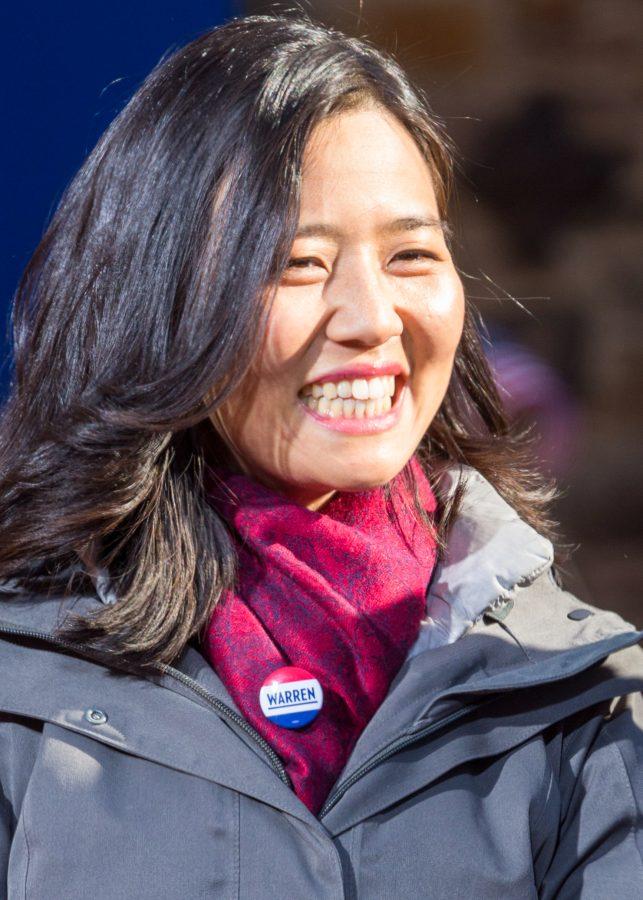On Nov. 16, Michelle Wu will be sworn in as Boston’s first female and person of color mayor. Wu won nearly two-thirds of the vote in a race against Annissa Essaibi George on Nov. 2. Here’s what to know about Boston’s new mayor:
Wu’s Background:
Wu was born in 1985 in Chicago, Ill. to Taiwanese immigrants, and raised there as well. Following high school, Wu attended Harvard University. After her mother suffered a mental health crisis, Wu returned home to Chicago to care for her.
Wu later returned to Boston, and went on to graduate from Harvard Law School in 2012.
During her time at Harvard Law, Wu studied under Senator Elizabeth Warren. Wu worked on Senator Warren’s 2012 congressional campaign, and Senator Warren endorsed Wu as her pick for mayor.
Wu was elected to the Boston City Council in 2013 at 28 years old. In 2016, she was elected as City Council President, making her the first woman of color to serve in that role. Wu also is the mother to two young sons.
Throughout the mayoral race, Wu maintained a considerable lead over her opponents.
The First Issues Wu Will Address:
One of the first issues Wu will tackle is the current situation occurring at the intersection of Massachusetts Avenue and Melnea Cass Boulevard, also known as Mass. and Cass.
On Oct. 19, acting mayor Kim Janey declared the situation a public health crisis due to the homelessness and drug use in the area.
Currently, many individuals are being removed from the intersection as their tents are being torn down by the city. City officials assured residents that they wouldn’t be forced to leave before they were offered support twice. Wu is seeking to figure out the best place to house these individuals.
“The priority is to make sure the city of Boston is providing low-threshold, stable, supportive housing for everyone,” said Wu. “We have city buildings or public buildings that are under-utilized.”
Wu will also focus on Boston Public Schools, and has committed to keeping the superintendent of Boston Public Schools, Brenda Cassellius, in her role.
Additionally, Wu is seeking to create more racial and gender diversity and equity in Boston’s procurement process. Wu had also worked on this during her time as a city councilor.
Wu is also searching for a permanent police commissioner. She has stated that the commissioner will not necessarily be from Boston.
Wu’s Other Policies:
Throughout the mayoral race, Wu distinguished herself as a progressive candidate. She is seeking to “free the T,” stop the rent control ban in the city, and ensure that Boston is a “Green New Deal City.” Wu also wants to abolish the Boston Planning and Development Agency.
Wu’s Cabinet Appointees:
Since her election, Wu has already appointed members to her mayoral cabinet.
Dr. Monica Bharel, the former commissioner of Massachusetts’s Department of Public Health, has been appointed to a cabinet-level senior advisor position that will focus on leading Boston’s efforts to resolve the situation on Mass. and Cass.
Wu also reappointed Sheila A. Dillon to the position of chief of housing and director of the Department of Neighborhood Development.
Dr. Bisola Ojikutu will remain in her role as executive director of the Boston Public Health Commission, but the position has been elevated to a cabinet-level role.

